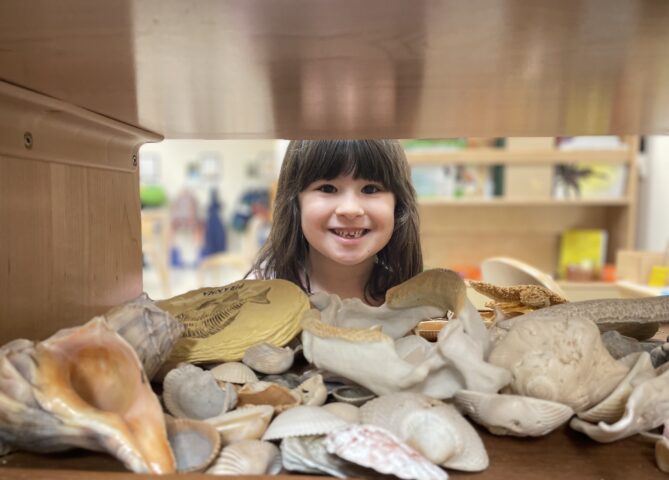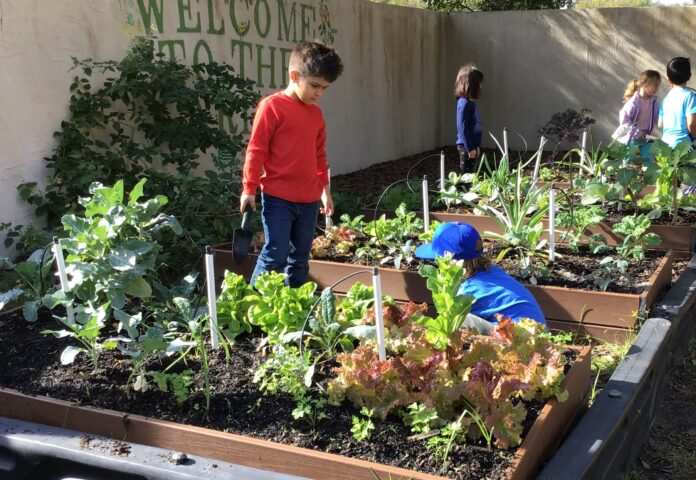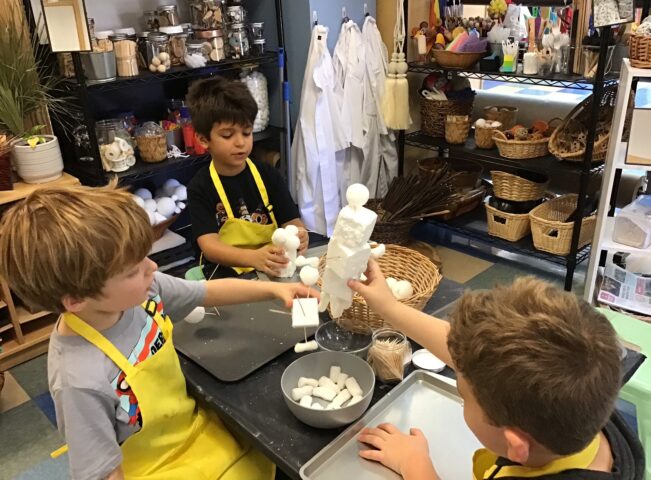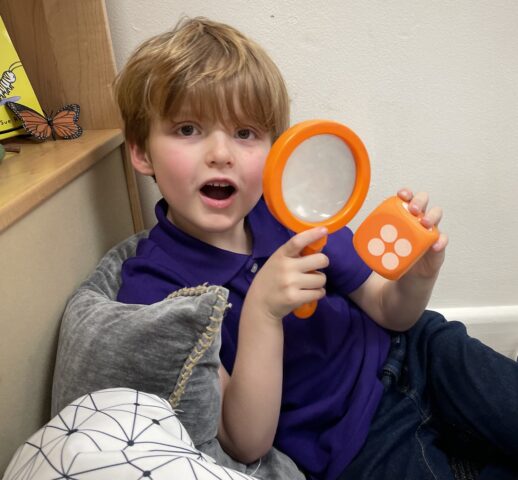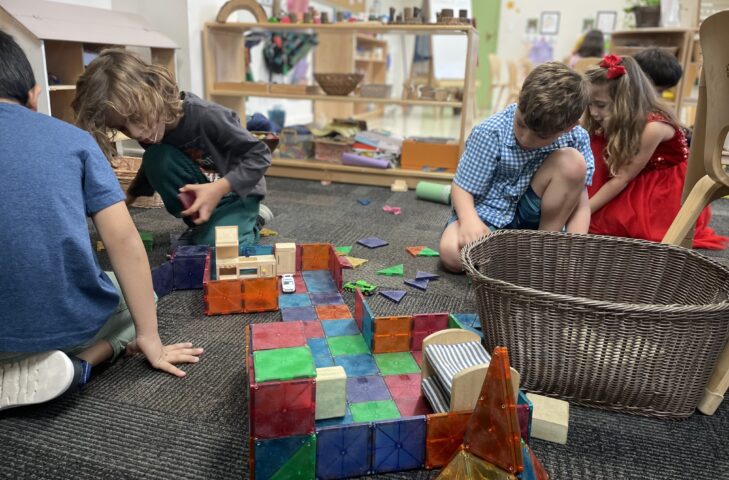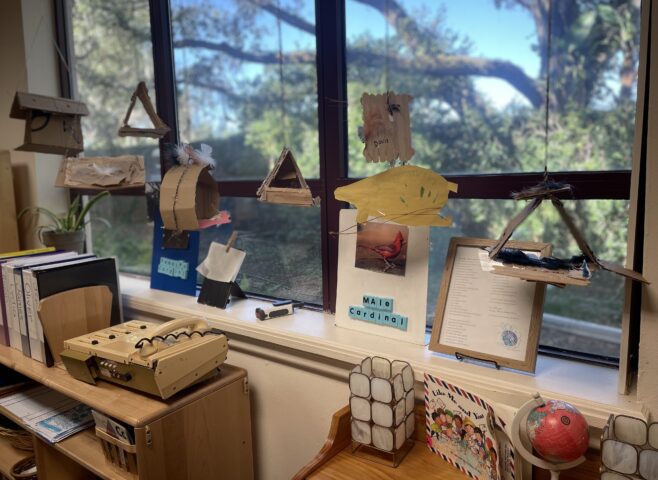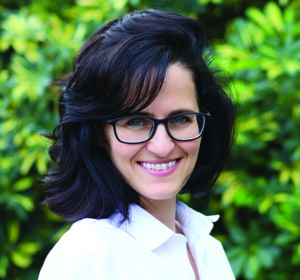Kindergarten
Age 5 by Sep 1
Ratio: 2 to 18 or 1 to 9
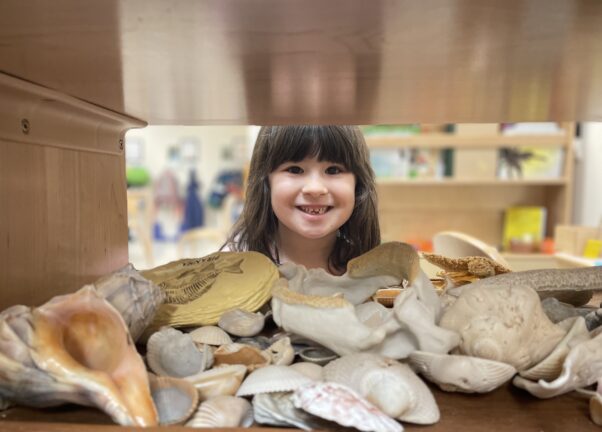
Overview
Our constructivist Reggio-inspired approach nurtures children’s natural curiosity and intrinsic motivation, laying a solid foundation for lifelong learning and success. Using elements of inquiry and project-based learning, we encourage exploration and discovery while emphasizing the learning process. Unlike traditional kindergarten settings that may rely heavily on standardized curricula, teacher-directed instruction, and predetermined curricula, our approach prioritizes inquiry-based learning, where a child’s questions and natural curiosity drive them to discover more! By emphasizing hands-on experiences, collaboration, and reflection, we cultivate critical thinking skills, creativity, and a strong sense of ownership over learning outcomes.
Kindergarten enhances critical thinking skills by using research-based curricula. While adding direct instruction in mathematics and literacy, classroom educators and students co-construct the direction of the inquiry. We create independent thinkers who can gather information on their own, question, and interpret it. Children are encouraged to be independent and take the lead.
The Michele Block Gan Yeladim Kindergarten Program also includes yoga as part of the PE curriculum and has a unique partnership with the North Florida School of Special Education.
Our constructivist Reggio-inspired approach nurtures children’s natural curiosity and intrinsic motivation, laying a solid foundation for lifelong learning and success.
Kindergarten curricula includes:
- Math: Our math curriculum is built around the principle that learners should know more than just what works when solving a math problem but why it works. Unlike traditional Math, we encourage our students to use varying mental strategies while solving problems.
- Language arts: Our program is a research-based approach that presents a carefully structured reading, spelling, and handwriting curriculum using engaging, multisensory techniques. Grounded in foundational skills, including phonological/phonemic awareness, phonics, spelling, structural analysis, high-frequency words, and fluency. Through explicit, assessment-informed differentiation and a combination of small- and whole-group lessons – systematic foundational skills instruction is built from standardized routines and features a variety of multimodal learning opportunities.
